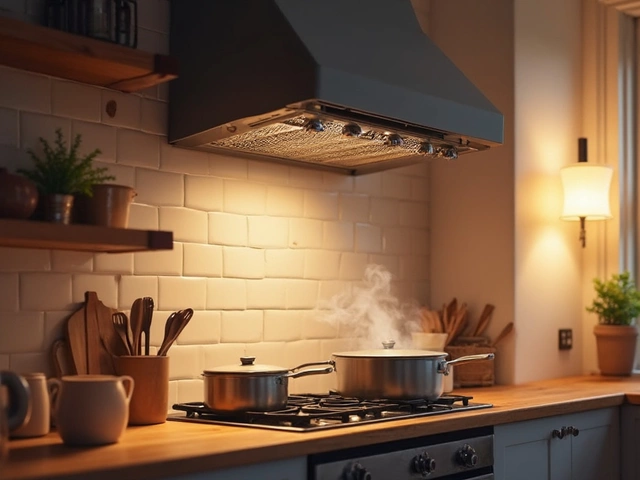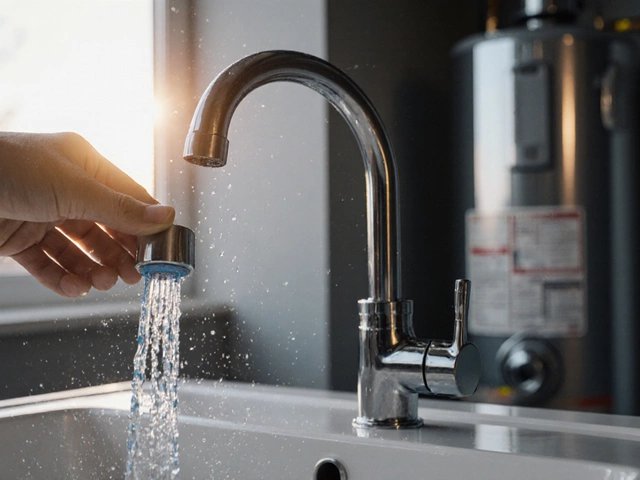Who Installs an Extractor Fan? Your Go-To Guide for a Swift Setup
February 7 2025Replace Old Boiler: Signs, Costs & Simple Steps
Living with a boiler that’s seen better days can spike your energy bills and raise safety worries. If your heater is noisy, leaks, or just doesn’t keep the house warm, it’s probably time to think about a swap. Replacing an old boiler isn’t a nightmare – with the right info you can plan a smooth upgrade that saves money and keeps your home safe.
What tells you the boiler is ready to go
First, listen for strange sounds – rattles, bangs, or whistling usually mean wear inside the metal. Next, check the water pressure gauge; readings consistently below 1 bar suggest leaks or failing seals. Look for rust on the pipework or a damp spot around the unit – that’s a clear sign of corrosion. Finally, if the boiler is older than 10‑15 years and needs a service every year, the repair bills often add up faster than a new, efficient model would cost.
Choosing a new boiler and budgeting
Modern boilers are far more efficient, so a fresh unit can cut heating bills by 20‑30 %. When you shop, think about fuel type (gas, oil, or heat‑pump hybrid), output size that fits your home’s square footage, and the Energy Performance Certificate rating. A typical replacement in Bedford runs between £2,000 and £4,500, including parts, labour, and a full service. Adding a smart thermostat can add £150‑£300 but gives extra control and saves extra energy.
The installation itself usually takes one full workday. The engineer will shut off the gas, disconnect the old unit, and fit the new boiler with correct pipe sizing and a fresh flue. Proper positioning near a vent ensures safe exhaust, while the new condensing boiler extracts heat from the flue gases, giving up to 90 % efficiency. After fitting, the system is pressure‑tested and a carbon‑monoxide detector is installed if you don’t have one already. Getting everything certified not only meets legal requirements but also protects your family from dangerous gases. Make sure you keep a record of the installation for future reference.
Don’t forget the hidden costs: boiler flue installation, gas safety certificates, and disposing of the old unit. Ask for an itemised quote so you can compare offers. A certified gas engineer will handle the gas connection safely and test the system before you start using it. It’s worth checking that the engineer is Gas Safe registered – it protects you and keeps the warranty valid.
Before you sign, ask about warranty length and what it covers. Most reputable installers offer a two‑year labour guarantee plus a five‑year parts warranty. If a deal looks too cheap, ask why – it may mean lower‑grade components or missing paperwork.
Once the new boiler is fitted, schedule a first‑year service. Regular maintenance keeps the efficiency high and spots early wear before it becomes a costly breakdown. You’ll also keep the warranty alive and your home safe from carbon‑monoxide leaks.
Bottom line: if your current boiler is noisy, leaking, or over 12 years old, start budgeting now. Compare a few quotes, check installer credentials, and pick a model that matches your home’s size. With a little research, swapping an old boiler can be a hassle‑free upgrade that pays for itself in lower bills and peace of mind.
 31 Jul
31 Jul
Should You Replace a 15-Year-Old Boiler? Essential Advice for Homeowners
Wondering if replacing a 15-year-old boiler is worth it? This guide covers the costs, efficiency, and whether a new model is the smarter choice for your home.
Read More...



